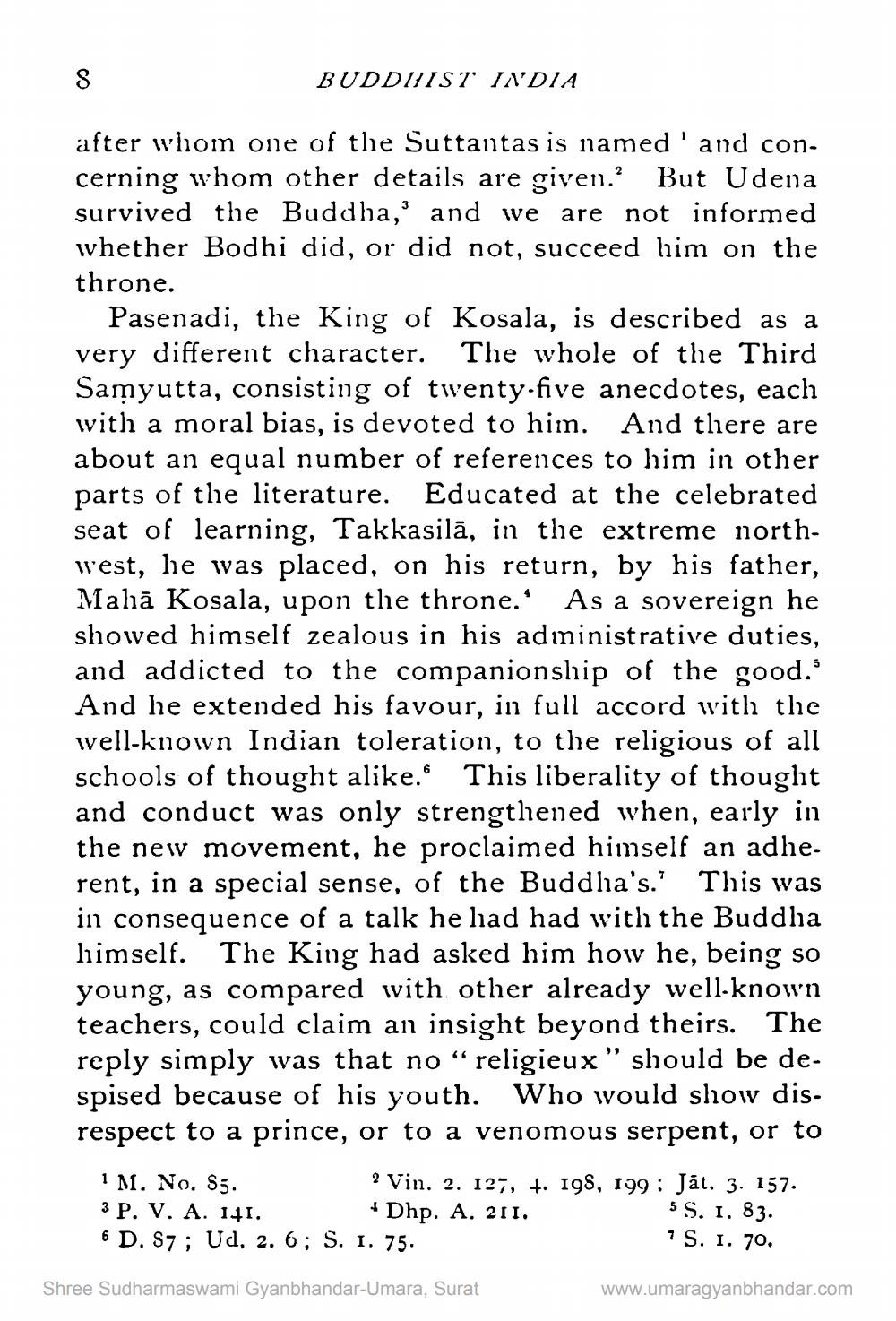________________
BUDDHIST INDIA
after whom one of the Suttantas is named' and con. cerning whom other details are given. But Udena survived the Buddha, and we are not informed whether Bodhi did, or did not, succeed him on the throne.
Pasenadi, the King of Kosala, is described as a very different character. The whole of the Third Samyutta, consisting of twenty-five anecdotes, each with a moral bias, is devoted to him. And there are about an equal number of references to him in other parts of the literature. Educated at the celebrated seat of learning, Takkasilā, in the extreme northwest, he was placed, on his return, by his father, Mahā Kosala, upon the throne. As a sovereign he showed himself zealous in his adıninistrative duties, and addicted to the companionship of the good." And he extended his favour, in full accord with the well-known Indian toleration, to the religious of all schools of thought alike. This liberality of thought and conduct was only strengthened when, early in the new movement, he proclaimed himself an adhe. rent, in a special sense, of the Buddha's.' This was in consequence of a talk he had had with the Buddha himself. The King had asked him how he, being so young, as compared with other already well-known teachers, could claim an insight beyond theirs. The reply simply was that no “religieux " should be despised because of his youth. Who would show disrespect to a prince, or to a venomous serpent, or to 1M. No. 55.
? Vin. 2. 127, t. 198, 199: Ját. 3. 157. 3 P. V. A. 141. + Dhp. A. 211.
5 S. 1, 83. 6 D. 57; Ud. 2. 6; S. 1. 75.
7 S. I. 70.
Shree Sudharmaswami Gyanbhandar-Umara, Surat
www.umaragyanbhandar.com




